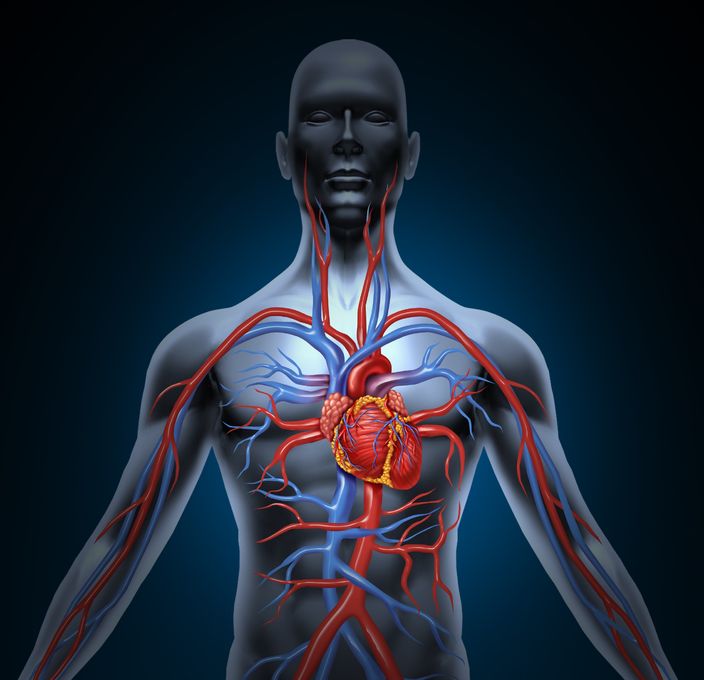Ten Things You Should Do For Your Heart
#withDavida
The heart is heavy on my mind this time of the year. It was a spring day when my mother died from heart complications at the age of 56. Her father died at the same age also from a failed heart. I myself had high blood pressure and seemed to be headed in the same direction. But I’ve managed to keep it low with acupuncture and exercise.
Heart disease continues to be the number one killer in America despite scientific gains and public education. A century ago people with heart disease were told to just go lay down and were considered doomed! So a group of cardiologist seeking to learn more and educate the public formed the American Heart Association (AHA) in 1924. Now it has 156 offices with 22.5 million volunteers and supporter. The AHA says it’s the nation’s leader in CPR education and helping victims of heart failure to live longer. If you pay attention to any public service message concerning heart disease and stroke, chances are the AHA is behind it.
Don’t be numb to the AHA’s messages.

Heart Disease
Read on for tips on what you can do to avoid being one of the 610,000 or 1 in 4 people a year who die from heart disease.
- Move More: Remember your heart is a muscle and needs to be exercised to stay strong. Americans have become very sedentary with a life geared toward driving instead of walking. Find excuses to walk instead of ride. Also, if you work out already don’t rest on your laurels. Spending an hour at the gym doesn’t mean that sitting the rest of the day is okay. Keep moving!
- Swim: It’s a great cardiovascular exercise that uses multiple body parts emphasizing the upper body. It improves breathing and circulation. It also lowers the heart rate and improves blood pressure.
- Manage Stress: Experts are unsure how stress affects heart disease other than driving blood pressure up and increasing stress hormones like adrenaline and cortisol. Stress can cause dizziness, headaches, lack of sleep weight gain or upset stomach. Reduce stress by exercising to increase endorphins. You might also try meditating or breathing techniques that can calm the mind and body.
- Dance! It’s a fun cardiovascular exercise that can only put you in a good mood especially if you love the music. Research has shown both dancing and music to reduce stress levels. Also, doing it in sync with other people has found to promote bonding and lower pain sensitivity.
- Reduce Sugar: Maybe you’ve seen the slogan “sugar is the new cigarette”? Some health advocates argue America’s obsession with low fat food allowed producers to saturate our food with sugar to make up for the taste and it is the cause of the growing obesity problem. Furthermore, research is starting to show a link between excess sugar and heart disease. The American Heart Association recommends women have no more than 100 calories a day from sugar and men have no more than 150.
- Drink in Moderation: While having a glass of wine or alcohol with dinner has shown to lower cholesterol and blood pressure, too much is harmful. Heavy drinking can damage the heart with what’s called cardiomyopathy. Binge drinking can cause irregular heart rhythms. Moderate drinking is considered 1 glass a day for women and 2 for men.
- Watch Your Weight: Obesity can lead to high blood pressure, high cholesterol and diabetes. All enemies of the heart. But even a little extra weight around the waist has been found to increase the risk for heart attack. Fat around the stomach is linked to high blood sugar, increased blood pressure and raised levels of triglycerides, all risk factors for heart disease.
- Look for symptoms and see your doctor: Know your blood pressure and cholesterol levels so you can react accordingly. Notice if your legs and ankles begin to swell. That or quick weight gain may be from fluid building in your system. See your doctor regularly and check with your doctor before beginning any exercise program and ask questions like:
- How much exercise can I do?
- What type of exercises should I try or avoid
- What are some warning signs I should beware?
- How should exercise affect when I take medication?
- Stop smoking and brush your teeth: Tobacco increases chances for a heart attack. It raises your blood pressure and damage blood vessels. Second hand smoke is bad too. Gum disease is also linked to heart disease so brush and floss regularly to keep your mouth healthy.
- Support the American Heart Association and be proactive: You can join a local AHA heart walk and get some exercise and raise money for heart research and public education. Also, take charge of monitoring your heart health by signing up on www.Heart360.org It’s the AHA’s online tool to help track your heart health and look for developing symptoms of heart disease.
Resources:
Sugar & Heart Disease: http://www.heart.org/HEARTORG/HealthyLiving/HealthyEating/Nutrition/Added-Sugars-Add-to-Your-Risk-of-Dying-from-Heart-Disease_UCM_460319_Article.jsp#.VzPd3mPpjzI
Gum & Heart Disease: https://www.perio.org/consumer/heart_disease
Exercise and Heart Disease: http://circ.ahajournals.org/content/107/1/e2.full
Stress & Heart Disease: http://www.medicinenet.com/stress_and_heart_disease/page2.htm











